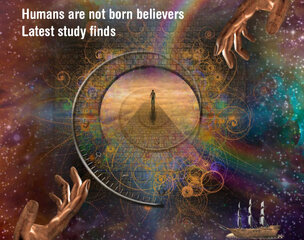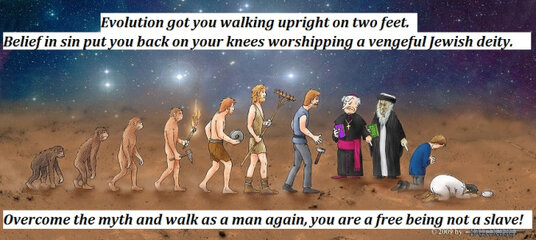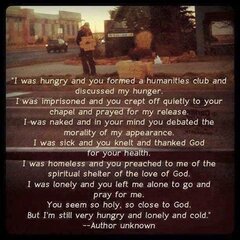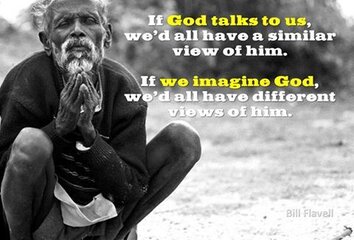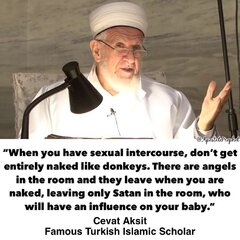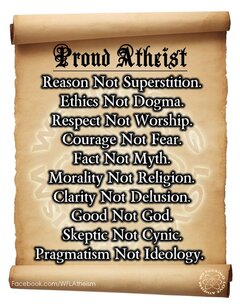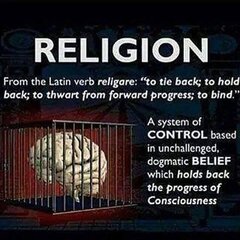http://www.christianitytoday.com/ct...experience-not-evidence-is-real-clincher.html
- - - Updated - - -
In ‘The Case for Christ,’ Experience, not Evidence, Is the Real Clincher
In his 2008 anti-religion documentary Religulous, Bill Maher was on a mission: His goal was to put religious people in their place once and for all by demonstrating how ridiculous and harmful their beliefs are. With its sub–Michael Moore grandstanding and utter lack of self-awareness, it was an astonishingly foolish film. In lieu of mounting a serious investigation into what makes faith—and the faithful—tick, Maher preferred to point a camera at whichever believers would agree to sign a release, and then badgered and mocked them into oblivion. In only an hour and a half, Maher and his director conducted a master class in how to make a bad film about religion: Prize glibness over substance, treat people like props, and never interrogate your own assumptions.
Listen to CT’s interview with Lee Strobel on The Calling
Movies from Christian film studio Pure Flix are on a mission as well. As the studio’s stated purpose makes plain, they’re out “to influence the global culture for Christ through media,” and that single-minded approach is apparent in the media it produces and distributes. Pure Flix’s output and Maher’s Religulous couldn’t be farther apart on the ideological spectrum, but more often than not, they represent two sides of the same coin when it comes to their inability to conceive of a universe that doesn’t conform to all of their presuppositions. It’s a failure not only of imagination, but also of humility—a failure that may not trouble Maher, but should trouble Christians.
It’s a relief, then, to find that Pure Flix’s The Case for Christ, released in theaters last week, makes an effort to shed the constraints of the “faith-based film” in favor of a more well-rounded vision. The film may be only intermittently successful, but when it takes its own story seriously rather than treating it as a means to an end, it stands among the best films yet produced by the Christian film industry.
The Case for Christ is based on the best-selling book of the same title by Lee Strobel, which walks the reader through Strobel’s investigations into the factual basis for Christianity’s claims about Jesus Christ. As a rising-star journalist at the Chicago Tribune—and an atheist—Strobel sought to discredit Christianity by doing what he did best: interviewing experts, checking facts, and collating sources into a logical whole. The further he looked into the matter, though, the more convinced he became that the Bible was telling the truth about Jesus, and in the early 1980s, he converted to the faith.
The book is a work of apologetics (albeit with the stylistic trappings of a memoir), so the adaptation fleshes it out to make it work as a narrative feature rather than a documentary. Screenwriter Brian Bird’s great contribution here is to make Strobel’s marriage, rather than his investigation, the centerpiece of the story. As Strobel tells it in his book, his wife’s sudden conversion to Christianity was the bombshell that prompted his attempt to debunk Jesus’ resurrection. In the film, he isn’t engaging in an intellectual exercise or trying to score ideological points; he is fighting for the survival of his marriage. The tagline for The Case for Christ could just as well be that familiar Hollywood-trailer cliché: “This time, it’s personal.”
The film is at its best when it focuses on this conflict and leaves the apologetics on the sidelines. A viewer may or may not be personally convinced by the evidence presented to Strobel during his investigation, but that is beside the point. The more pressing question is this: Will Strobel be convinced? Will he overcome his reflexive contempt for his wife’s faith before their conflict tears their family apart?
We already know the answer, of course, because this is a Pure Flix movie called The Case for Christ, and our protagonist wrote the book on which it’s based. But Mike Vogel and Erika Christensen, in their roles as Lee and Leslie Strobel, inhabit the central dilemma compellingly enough to allow us to lay aside our knowledge of the outcome for the moment. The effect is further aided by the production design and cinematography, which, under director Jon Gunn’s guidance, seek to avoid the overlit, antiseptic visuals of the God’s Not Dead movies in favor of a plainer, darker look. In contrast to the artifice and sterile inspiration of most faith-based films, The Case for Christ offers a vision of reality that feels like—well, reality.
Alas, all that goes out the window when it comes time for the portions of the film that actually make the case for Christ. It is beyond the scope of a film review to evaluate the specific arguments and assumptions articulated by the people whom Strobel interviews, but regardless of their rhetorical and historical merits, the apologetics sequences make for bad cinema and bad storytelling. Periodically, the domestic melodrama and character development come to a screeching halt, superseded by enormous chunks of exposition that work better on a page than on a screen.
Gunn does his best to stage the interviews in an interesting way, but the results are nonetheless stilted, sometimes comically so. (A conversation with a medical professional, for example, is set in a laboratory with lots of doctors milling about, doing vaguely science-y things while ignoring the reporter who is distracting their boss with questions about the Crucifixion.) The audience is left with little to do other than twiddle their thumbs while they wait for the story to start rolling again.
During these interview scenes, the film unfortunately backslides into an all-too-familiar patronizing complacency. God’s Not Dead rightly received criticism for its simplistic portrayal of non-Christians, suggesting that Christianity’s empirical truth is so obvious that the only explanation for unbelief must be emotional dysfunction or willful ignorance. The Case for Christ avoids this pitfall by aligning the audience’s perspective and sympathy with an atheist protagonist: Strobel’s skepticism is complex, and is portrayed as such, at least to begin with. But the interview scenes have a flattening effect, reducing the knotty questions of faith to a series of propositions that are disposed of within a five-minute dialogue exchange. Strobel’s anger, confusion, and desperation to get to the bottom of Christianity melt away and are replaced with a bland certitude. Of course Christianity’s claims about Jesus are true—how could anyone believe otherwise?
Bird’s screenplay offers one possible answer to that question by having a psychologist character (Faye Dunaway, inexplicably) imply that fervent atheists all suffer from daddy issues (though she euphemistically uses the term “father wounds”). It’s a low point for the film, on par with Religulous’s sneering at religion as the last refuge of dullards who need affirmation from an “imaginary friend.” In that moment, The Case for Christ seems to forget that it’s a story about one atheist’s journey to faith, and instead becomes something much shabbier: a blunt instrument for use in debates.
This unevenness mars the film as a whole. On one hand, it wants to be a modest drama about one man’s spiritual odyssey; on the other hand, it wants to use that drama as a tool. The latter goal has a way of throttling the former. Good narrative art situates the audience within another person’s perspective, and what we see in that headspace is both gratifyingly strange and strangely familiar. When The Case for Christ gets out of its own way long enough to simply show us Strobel’s struggle with the changes around him and within him, it compels our interest. When it presses “pause” in order to explain why the evidence that convinces Strobel should be universally convincing, it falls inert.
Every writer encounters a certain maxim at some point while learning his or her craft: “Show, don’t tell.” The underlying principle is that a story is always stronger when it can make its audience feel something rather than simply instructing them how to feel. It’s no surprise, then, that The Case for Christ is strongest when it remains content to thoughtfully explore Strobel’s story. When it sets exploration to the side and wields that story like a sermon anecdote, the failure of imagination infects the filmmaking.
I hope that The Case for Christ’s successes, rather than its flaws, will nonetheless serve as a model for future faith-based films. In its climactic conversion scene, Lee Strobel attempts to pray, but stumbles over his inexperience: “God, I don’t know what I’m doing,” he laughs. That moment—honest, plain, and shot through with joy and humility—serves the film’s purposes better than all of its Bible experts combined. That’s what we really came to see.


